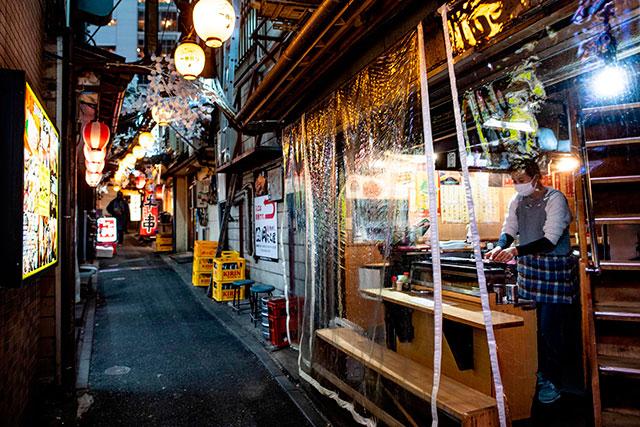- International News
- Friday-2021-01-08 | 11:34 am

Nayrouz News Agency :
The state of emergency declared in Japan on Thursday to tackle a record-breaking third coronavirus wave will be much less strict than lockdowns seen elsewhere, and softer even than the country's first Covid emergency last spring. So how will it impact daily life?
Which areas are affected?
The month-long declaration is not nationwide. It affects four neighbouring areas that account for much of the rise in Japan's caseload: Tokyo, Chiba, Kanagawa and Saitama.
The region, known as greater Tokyo, is home to more than 36 million people and accounts for a third of Japan's GDP.
Other parts of the country are not affected for now, although one other region has said it could seek to be included if cases there continue to rise.
What does the measure allow?
A state of emergency empowers governors in affected regions to call for restrictions on movement and commerce but offers little in the way of enforcement.
Governors can request people stay inside and call for businesses that attract large numbers of people, like entertainment venues or department stores, to close their doors.
But there are no punishments for those who defy the request, nor any other enforcement mechanisms.
Japan's government is seeking to introduce legislation this month to allow fines for businesses that defy closure requests, and provide incentives for those who comply.
So what will change?
This time restaurants and bars will be asked to stop serving alcohol by 7 pm and close an hour later, except for take-out and delivery.
Other businesses — from gyms to theme parks -- are also likely to be asked to shorten hours, and telework will be encouraged with the goal of reducing commuter traffic by 70 percent.
Residents will be asked to avoid non-essential outings, especially in the evening.
The strongest power accorded to governors is the ability to commandeer buildings or land for medical purposes, for example requiring landowners to turn over property to build temporary medical facilities.
Local education boards can also close schools but officials say there are no plans to do so for now.
And reports suggest the cap on spectators at major events will be revised down to 5,000 people or 50 per cent capacity, whichever number is smaller.
The restrictions are more lax than Japan's last state of emergency, which saw many businesses closing altogether and shuttered schools.
How will the public react?
Despite the lack of enforcement, last year's state of emergency was widely respected.
Suga's government has seen approval ratings slump over its handling of the third wave of infections, with criticism of its decision to continue promoting a domestic travel campaign even as case numbers rose.
Polls from December on the prospect of a nationwide state of emergency showed a majority supporting the move.
What does it mean for the Olympics?
Japan's government and Tokyo 2020 organisers have steadfastly stuck to the line that the virus-postponed Games will open this summer, and Suga reiterated this week his determination to hold the event as "proof of mankind's victory over the virus".
Still, a majority of the public, even before the emergency, opposed holding the Games this year, favouring further postponement or outright cancellation.
The recent retightening of border restrictions could theoretically affect visits by Olympic officials, but athletes are not due to begin arriving for months.
However, some health officials have warned the emergency would need to last around two months to have an effect on infection rates -- edging close to the new March 25 start date for the Olympic torch relay.













